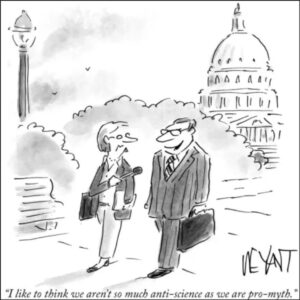 Republished with permission from VoxFairfax.com.
Republished with permission from VoxFairfax.com.
Over eight years, 1954-1962, Ronald Reagan, as spokes master for the popular TV series General Electric Theatre, opened each episode with an introduction that “Progress is our most important product.” While economists and corporate pundits might agree on measures of progress to gauge a company’s accomplishments, political and social progress in society largely escape measure, or at least any that receives common consensus.
Progress in the industrial or commercial sector tends to be responsive to competition. At the same time, such progress is an outcome and a process guided by leadership. Failure to progress may result in the decline of market value or unwelcome takeover, even bankruptcy.
Voters, constituents, and residents of this nation, its states, and localities, possess an instinct for social progress that is sometimes reflected by choices of elected officials. Between elections, the social progress barometer of those interested cohorts is subjected to, in large measure, the success or failure of bills in a legislative session.
Poll results can serve as an indicator of the views of the governed, providing legislators with a rationale for support or opposition to an issue. In 2015, SCOTUS ruled that all states must legally recognize same-sex marriages. A Gallup poll in June 2021 reported that 70% of Americans, including a 55% majority of Republicans, supported that position.
Earlier, however, in 2006, Virginians voted 57% to 43% in favor of an amendment to its constitution banning same-sex marriages. In 2014, a federal appeals court ruled the Commonwealth’s ban unconstitutional. In 2021, the Democratic legislative majority approved referendum language to remove the 2006 prohibition.
At a House subcommittee hearing on February 8 of this year, a GOP-led majority voted 6-4 to block the required second-year passage of the bill to place it on the ballot for consideration by voters. An opposition critic from the conservative Family Foundation stated the language could “open the door to legally sanctioned polygamy, inter-family marriage, and child marriage,” as reported by the Virginia Mercury. In sum, six legislators relying upon dubious, anecdotal ideology, determined that the popular expression of American opinion and SCOTUS were unpersuasive in accepting an advance in social progress. Virginia, consequently, retains a lame-duck constitutional proscription that is unenforceable and safely ignored.
On the same legislative day, a House committee, Republican-led, voted 5 to 4 to block yet another previously approved bill to amend the constitution to permit restoration of ex-felon voting rights upon release from prison. Virginia’s ban is functionally lifetime. Presently, restoral of suffrage requires approval of the governor. However, restoration of voting rights does not affect other statutes that prohibit ex-felons from jury service, qualifying as a notary public, securing public housing, or obtaining licensure for many trades.
The proposal enjoys widespread support from diverse groups from both ends of the political spectrum, including the American Conservative Union, Virginia ACLU, Legal Aid Justice Center, League of Women Voters, Catholic Conference of Virginia, and the Virginia NAACP. Polling results on the topic are generally mixed with respect to the method of restoring suffrage. One Huffpost poll in early 2018 found 63% across political lines in favor, with 53% supporting automatic restoration upon release from prison.
The amendment language of the proposed Virginia bill reflected that popular view. The Republican majority criticized the bill because it did not contain provisions to require payment of restitution or fines before restoring voting rights. After voters in Florida had approved a constitutional amendment restoring ex-felon voting rights, the state legislature promptly adopted legislation barring restoration where restitution or fines were pending. Functionally, this is the equivalent of a poll tax, outlawed by the 24th Amendment to the Constitution, adopted in 1964. No present laws prohibit voting where an individual owes federal or state income tax or has outstanding parking or moving violation fines.
Conservative ideology in this regard holds that ex-felons ought not to have the right to vote because that right allows the choice of those who make laws and lawbreakers should not be permitted to make that choice. This tautology is further buttressed by requirements that restoration of voting rights must not be automatic because of the lawbreaking and that an unspecified period of time following release is necessary. The lapse of time, in turn, allows opportunity to determine that an individual has “turned over a new leaf.”
In these two instances, party politics demonstrates that social and political progress are not the most important product of a legislative session. What is good for General Electric or General Motors is not the same as what is good for the electorate – no matter what its opinion may be. That elections have consequences is far too cynical snark to excuse this opposition.
Had 11 Republicans voted in favor, there would not likely have resulted any fatal consequences. To the contrary, on these two issues, affirmative votes would play positively in the November 2022 campaigns. In fact, in light of the early stumbling of the newly crowned state political leadership, passage of these two bills offered an opportunity to exert the leadership voters and constituents expect from elected officials. The failure to do so here benefits no substantive political or social interest and only reinforces public distaste for crass politicking and ideology.


